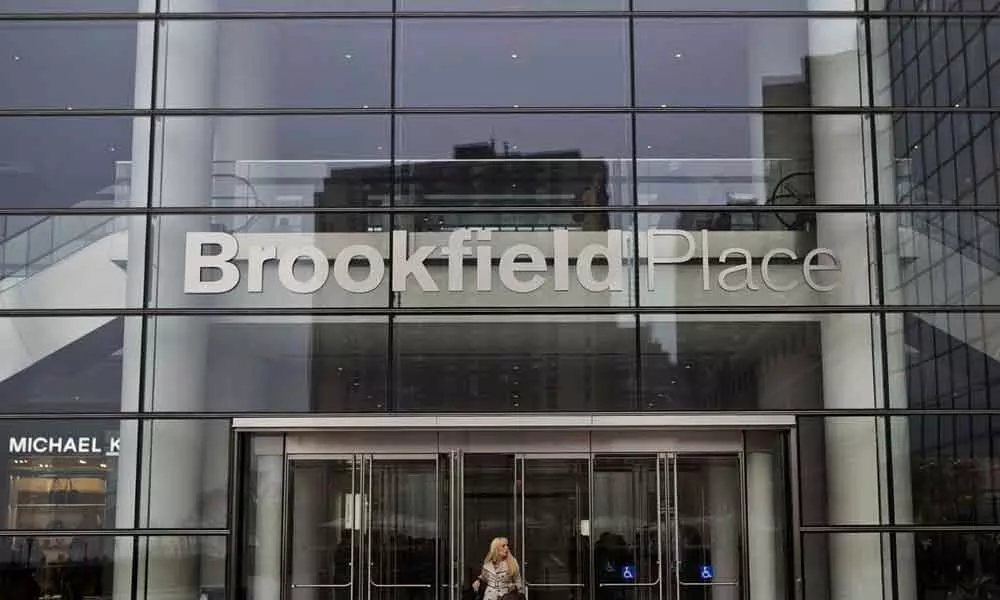Brookfield REIT- Fixed income-like product
image for illustrative purpose

REITS or real estate investment trusts concept is picking up in the country. We already have two such trusts listed on the bourses in the form of Embassy Parks and Mindspace. A third trust from Brookfield India Real Estate is looking to tap the capital markets with its issue to raise Rs 3,800 crore at a unit price of Rs 274-275. The issue would open on February 3, Wednesday and close on February 5, Friday. The company would be issuing between 13.81 to 13.87 cr units. The leasable assets of the trust are currently at 10.3 million square feet (msf) spread over Mumbai, Kolkata, and NCR region (Gurugram and Noida). The remaining 3.7 million square feet is a right to develop which the trust enjoys. This means effectively the trust has ready property to earn lease rent on 10.3 msf and the potential to construct and then lease another 3.7 msf.
The projections given by the trust that are mandatory for an instrument of this type indicate that they would earn a distributable income of 7.95 per cent for the financial year 2021-22 which would increase by about 45-50 paisa to 8.40-8.45 per cent in FY2022-23. This would be distributed in the form of 85 per cent interest and 15 per cent dividend, with interest taxable in the hands of the investor and dividend remaining tax free.
As the nature of this interest is more of a fixed income, debt instrument this is benchmarked to money market returns. With the huge deficit in the current year 2020-21 and proposed 2021-22 budget, it is likely that interest rates may move up marginally. This could have an impact on the earnings of REIT's. The primary business of a REIT is to earn lease rentals. While Covid-19 has temporarily affected leasing business, one hasn't seen any cancellations, terminations of hired office space. While the trust from Brookfield has a weighted average pending lease period of 7.1 years which could be considered long and certainly sustainable in the current context of Covid-19, it could also act as a limiting factor for earning higher lease rentals in the medium term. The trust further states that it has 8.3 msf of identified assets which would/could be acquired post six months of listing and within 6 months thereafter. This acquisition would be at a minimum cost of Rs 8,565 crore plus interest and any costs incurred on developing these assets. Looking at the current trust structure post this IPO where the trust would have issued units in the region of roughly 30.2 crore units, such a large purchase would certainly entail a dilution of the equity of the present trust. The acquisition could happen in a combination of fresh units, cash or a combination of both. Whatever is the case, if the fresh fund raising happens to be realty, it would dilute the present investors' interest through this offering. Dilution is not good to the NAV value as a fresh issue entails a discount to the then market price, which would be in relation to the NAV. As in the recent case of a dilution by another listed peer, Embassy office Parks market price fell sharply from Rs 375 to Rs 351 on account of this dilution.
Besides the above identified assets, it also has 6.7 msf of ROFO assets which stands for right of first offer. If all goes well, the trust would move from the original 10.3 msf to 29 msf.
This becomes an imminent risk for potential investors and should be borne in mind while investing in the initial offering of units from Brookfield Reit.
In conclusion, this is an instrument which has the potential to earn higher returns as and when normal working resumes across the key metro cities in India and things are back on track. As about 85 per cent of the distributable surplus would be paid out in taxable interest income, this may not be the ideal instrument for investors who are in the higher tax brackets. Considering the pros and cons, investors should take a conscious decision considering their individual risk profile and bear in mind the impending dilution in under 12 months.
Arun Kejriwal(The author is the founder of Kejriwal Research and Investment Services, an advisory firm)

